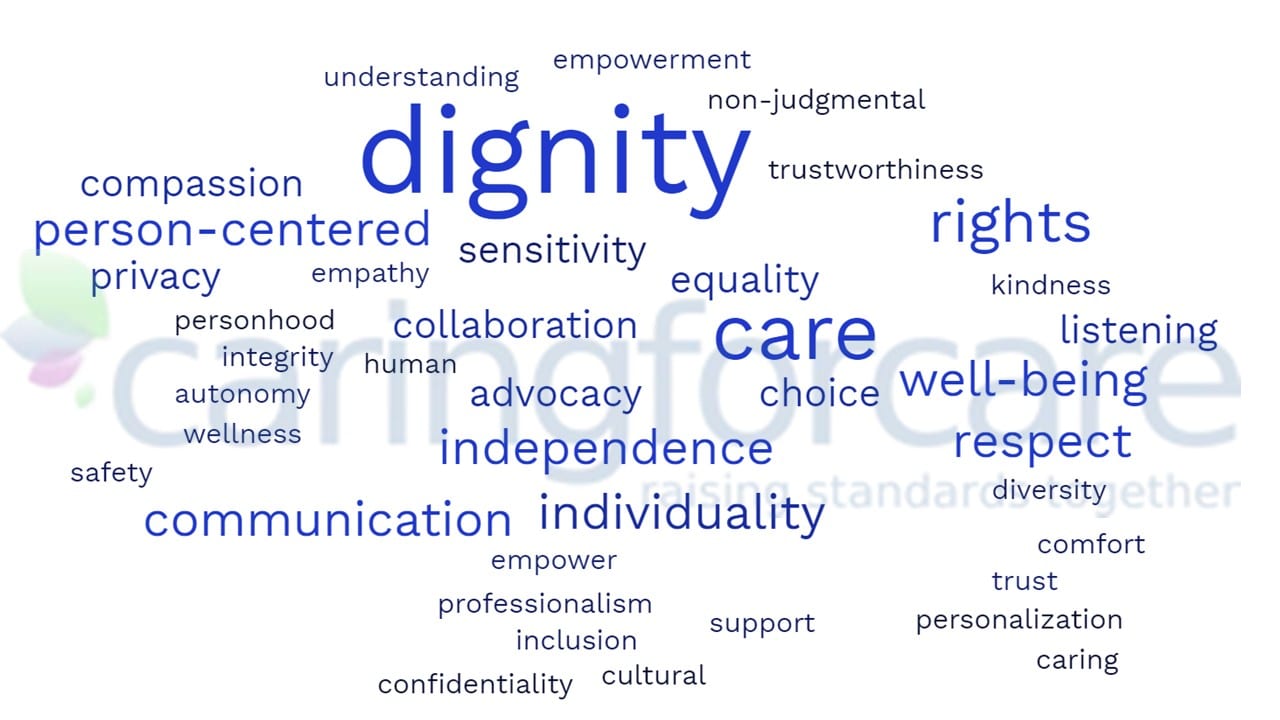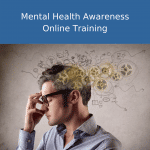Description
Dignity, Privacy and Respect
Our Dignity Privacy and Respect training course empowers learners to support individual choices and care needs, maintain dignity privacy and respect, implement service improvements, and comply with relevant legislation.
Prioritizing dignity, privacy, and respect enhances patients’ mental and physical wellbeing, promotes independence, and fosters a positive perception of your organization’s care.
- Developed by professionals
- Accredited by The CPD Accreditation Group
- 100% online, learn at your own time and pace
- Translates into over 100 different languages
- Instant certificate downloaded
By upholding dignity, privacy, and respect in care, caregivers can significantly contribute to the mental and physical wellbeing of individuals.
By fostering independence and providing care with kindness and respect, caregivers can create positive experiences for patients, enhance their overall satisfaction, and build a strong reputation for their organization in the healthcare community.
Course Outline:
The aim of this online Dignity, Privacy and Respect training course is to enhance your understanding of dignity, privacy, and respect in care, along with relevant legislation. The key points covered in this course are:
- Defining dignity, privacy and respect
- Legislation and its affects
- Identifying discrimination
- Poor practice
- Support specific care needs
- Implementation of change
- PCC
1. Defining dignity, privacy, and respect in the context of care:
Understand the fundamental concepts and principles that guide the provision of dignified and respectful care.
2. Legislation and its effects:
Learn about the relevant laws and regulations that protect the dignity, privacy, and rights of individuals in care settings.
3. Identifying discrimination:
Develop the ability to recognize and address discriminatory behaviors and practices that undermine dignity and respect.
4. Poor practice:
Gain insights into the consequences of poor practice on the well-being of individuals and the importance of maintaining high standards of care.
5. Supporting specific care needs:
Acquire the knowledge and skills necessary to provide tailored care that respects the individuality and unique needs of each person.
6. Implementation of change:
Explore strategies for implementing positive changes in care practices to enhance dignity, privacy, and respect for all individuals.
7. Person-centered care (PCC):
Understand the importance of person-centered care approaches in promoting dignity, privacy, and respect throughout the care journey.
Dignity Privacy and Respect Training Course Learning Outcomes:
On completion of this Dignity, Respect, and Privacy training course, learners will be able to:
- Define the concepts of dignity, privacy, and respect and understand their significance in care settings.
- Describe the relevant legislation and its impact on organizational practices regarding dignity, privacy, and respect.
- Identify instances of discrimination and take appropriate actions to address and prevent it.
- Recognize and address poor practice that undermines dignity, privacy, and respect in care.
- Demonstrate knowledge and skills in supporting specific care needs to promote individual dignity and well-being.
- Understand strategies for implementing change to improve the quality of care and enhance dignity, privacy, and respect.
- Explain the role of person-centered care (PCC) in ensuring dignity, privacy, and respect are prioritized in care provision.
Frequently Asked Questions
What is dignity privacy and respect?
Dignity, privacy, and respect are important. They mean valuing others and their rights. It’s about fairness, boundaries, and diverse perspectives. By embracing these principles, we create positive interactions and trust.
These principles are crucial in various settings, like healthcare and everyday interactions. Dignity ensures that everyone is treated with kindness and empathy, regardless of their background. Privacy protects personal information and creates a safe environment.
Respect promotes equality, listening to others, and appreciating their differences. By embracing these principles, we foster a society built on empathy, fairness, and mutual understanding. Check out examples that show how you can promote dignity privacy and respect in a care setting.
Why is privacy and dignity important in the care setting
Privacy and dignity are crucial in the care setting as they promote a person’s autonomy, well-being, and self-respect. Respecting privacy safeguards confidentiality, while maintaining dignity upholds a person’s sense of worth and maintains their individuality. This fosters a supportive and respectful care environment, enhancing the overall quality of care provided.
What are the 3 integral aspects of dignity in practice?
In practice, three important aspects of dignity are:
- Choice: It means letting individuals make decisions about their own lives and health. Respecting autonomy and preferences.
- Privacy: It’s about keeping personal information safe and respecting personal space. Making sure things are confidential.
- Kindness and Understanding: It involves being caring, listening, and supporting emotions. Treating others with empathy and compassion.
By following these aspects, professionals can ensure people are respected, have control, and feel supported.
Why do workplaces conduct dignity training?
Workplaces conduct dignity training to promote a respectful and inclusive work environment, prevent harassment and discrimination, foster positive relationships among employees, and ensure the well-being and dignity of all individuals in the workplace.





